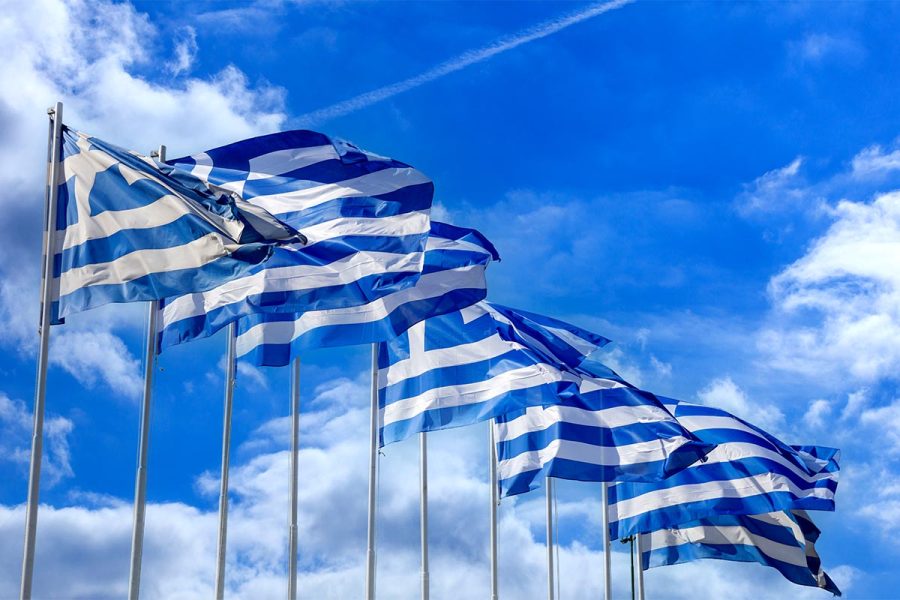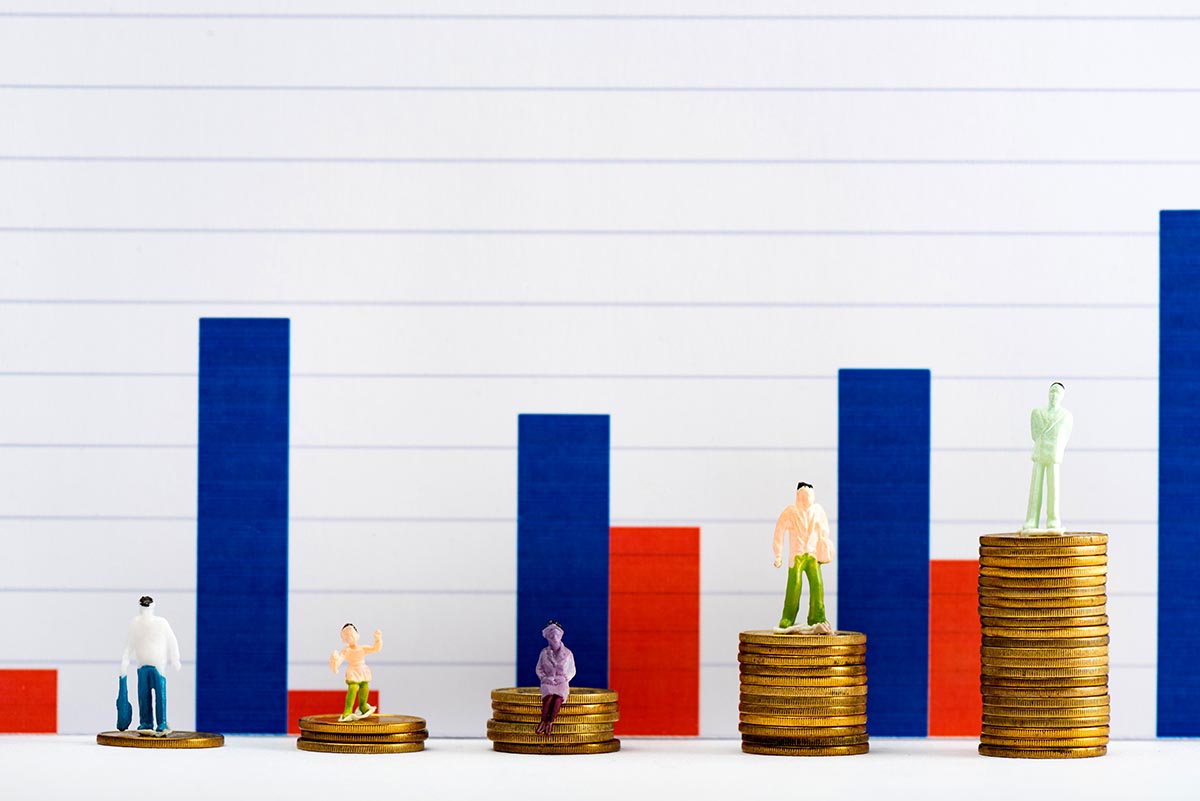Greek Prime Minister Kyriakos Mitsotakis’ visit to Belgrade on February 12, 2024, is poised to be a pivotal moment in Greek-Serbian economic relations
Greek Prime Minister Kyriakos Mitsotakis’ February 12, 2024 visit to Belgrade is likely to be remembered as a turning point in Greek-Serbian economic relations. That’s because it marked the return of Greek companies and banks to the Serbian market, but also the bolder entry of Serbian companies into the Greek market and new joint infrastructure projects that will prove significant not only for Greece and Serbia, but also for the region of Southeast Europe as a whole.
Following more than a decade of declining Greek investments and even the withdrawal of Greek capital from Serbia, coupled with the slow growth of mutual trade, new opportunities for cooperation between the two countries and their business communities have been created with the consolidation of the Greek economy, the GDP of which has reached almost 200 billion euros in the meantime, and the rise of the smaller Serbian economy, which intends to increase its GDP by a third – to 100 billion euros – by 2027, but also the major public investments being implemented by both countries.
Serbia has launched a new major investment cycle as part of preparations for the specialised world EXPO that Belgrade will host in the summer of 2027, within the scope of which some 17-18 billion euros will be invested in the EXPO complex and dozens of other infrastructure projects. This won’t only bring jobs to the local economy, rather it will also expand the area for the engagement of Greek companies in Serbia. At the same time, the recovery of Greek public investments, which – supported by European funds – have reached their highest level in 14 years, provides a good indicator to Serbian companies that have strengthened their capacities and are able to invest beyond the borders of their country and recognise the opportunities to engage in Greece.
Providing another reason for future Greek investments in joint production in Serbia and exports to third markets are the new free trade agreements that Serbia has signed with China and is negotiating with the UAE and Egypt
Apart from Serbian President Aleksandar Vučić’s open invitation to Greek companies to involve themselves in the realisation of Serbia’s great “Leap into the Future” project, state investments in infrastructure will also provide new opportunities for cooperation between the two countries’ private sectors in a new environment; for a new wave of Greek investment in Serbia and Greece’s return to the list of the top investors in Serbia.
According to the National Bank of Serbia, Greek companies have directly and indirectly invested a total of approximately 2.2 billion euros in Serbia, mostly in banking and mostly prior to the 2008 Greek financial crisis. Since 2010, there has been A decline in Greek investments in Serbia and the outflow of Greek capital from the country, first and foremost with the withdrawal of Greek banks from Serbia, have been recorded since 2010. Nearly 300 companies with majority Greek ownership are today operating in Serbia (together with around 430 entrepreneurs) and employ around 10,000 workers.
Space exists for new Greek investments and joint ventures with local companies in almost all sectors. From agriculture and energy, via various segments of the manufacturing industry, to services (tourism, transport and logistics, ICT). Providing another reason for future Greek investments in joint production in Serbia and exports to third markets are the new free trade agreements that Serbia has signed with China and is negotiating with the UAE and Egypt. Once they are applied, Serbia will double the number of consumers on the markets with which it has duty-free trade, to around 2.7 – 2.8 billion.

Economic relations between the two countries will certainly be strengthened significantly in the future and marked by cooperation in the field of energy, judging by the interest among Greek business leaders who recognise the opportunities of inclusion in Serbia’s green transition energy projects, particularly in the RES segment. Moreover, in just a few weeks, as has been announced, operations will be launched at the new LNG terminal in Alexandroupolis, which represents a project that’s important for energy security and the diversification of gas supplies for Serbia and the region as a whole. Serbia has already reserved 300 million cubic metres of gas from this terminal, while the gas interconnector with Bulgaria that will deliver natural gas to Serbia has also been completed.
Although energy looks likely to displace banking at the top of the list of the dominant sectors in cooperation between the two countries, it is very important that Greek banks also attended the Greek-Serbian Business Forum in Belgrade, as it demonstrated their readiness to support investment and trade arrangements between Greek and Serbian companies on the Serbian market.
Economic relations between the two countries will certainly be strengthened significantly in the future and marked by cooperation in the field of energy, judging by the interest among Greek business leaders who recognise the opportunities of inclusion in Serbia’s green transition energy projects, particularly in the RES segment
The key prerequisite for more people, goods, services and capital to move between Serbia and Greece is represented by the transport infrastructure links of the two countries, both of which are important transport hubs in this part of Europe. Despite having increased 2.3-fold over the past ten years (between 2014 and 2023), bilateral trade remains very modest, standing at less than 800 million euros (€792 million, with Serbian exports to Greece worth €299 million and imports from Greece worth €493 million), which is far below the possibilities and the targeted two to three billion euros.
In addition to Serbia having in recent years completed its road sections of Pan-European Corridor X towards Greece with the construction of modern highways, the Greek-Serbian agreement to accelerate activities on the railway sections of this transport corridor, with the construction of a high-speed railway covering a total distance of 1,512 kilometres and connecting Greece’s Port of Piraeus with Budapest, via North Macedonia and Serbia, is particularly important from the perspective of the economy. Moreover, Serbia has publicly expressed its interest in utilising the capacities of the Greek ports of Thessaloniki and Piraeus – not only through leasing, but also through the purchase of parts of these ports – as points of departure for Serbian goods heading to distant markets. The implementation of the agreement on the establishing of a unified electronic road toll system will certainly also contribute to easing and speeding up the transport of goods and the movement of people between our countries.
Despite being covered last, tourism – which is synonymous with Greece and is something that unites our people the most, alongside the traditional friendship between our nations and the strategic partnership between the two countries – remains an important segment of bilateral economic cooperation. It was with good reason that Greece was the partner country of this year’s 45th International Tourism Fair in Belgrade, held from 22nd to 25th February. It is estimated that up to a million Serbian tourists visit Greece annually. Serbia is also seeking to entice more Greek tourists to the country, but also more Greek investors in the Serbian hotel and hospitality industry, given projections that more than a hundred hotels will have to be built prior to the start of EXPO 2027, which the state will support with subsidies of 20 per cent for the construction and reconstruction of hotel capacities.
